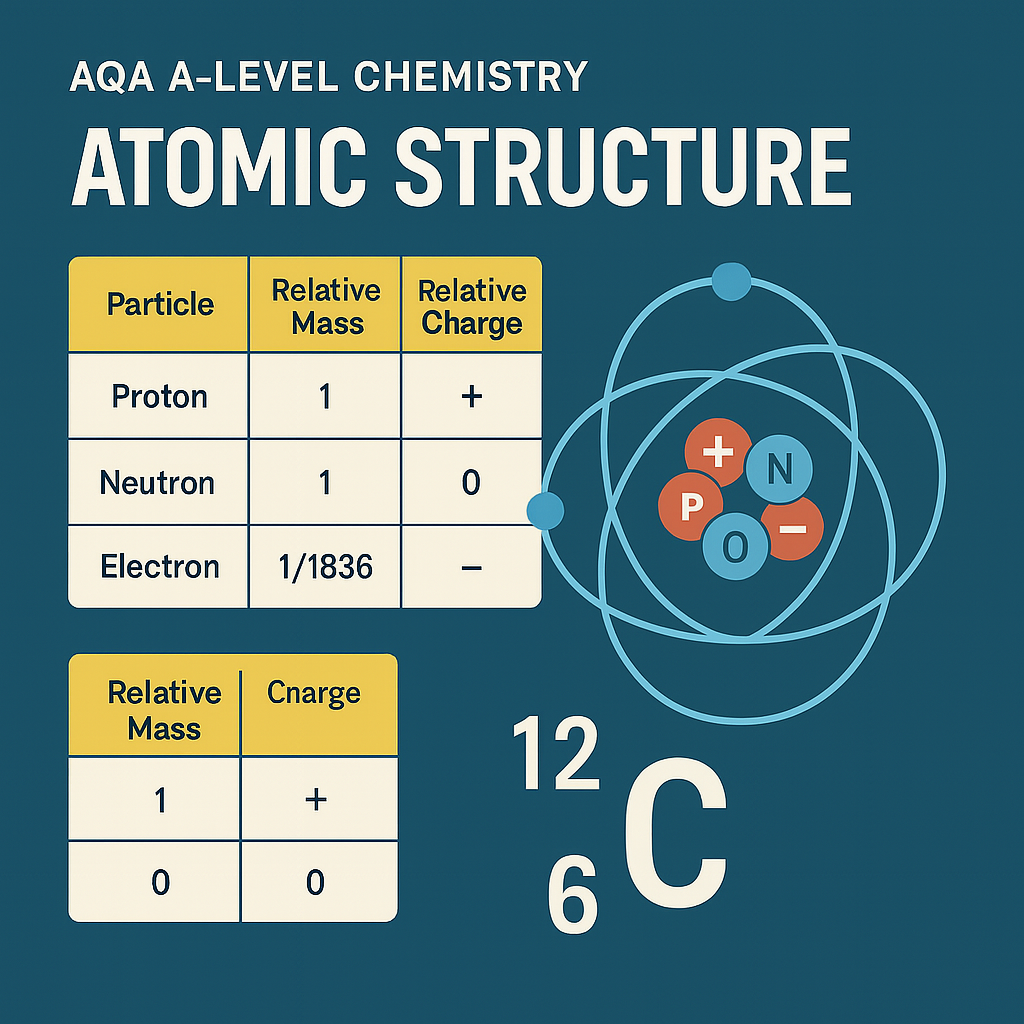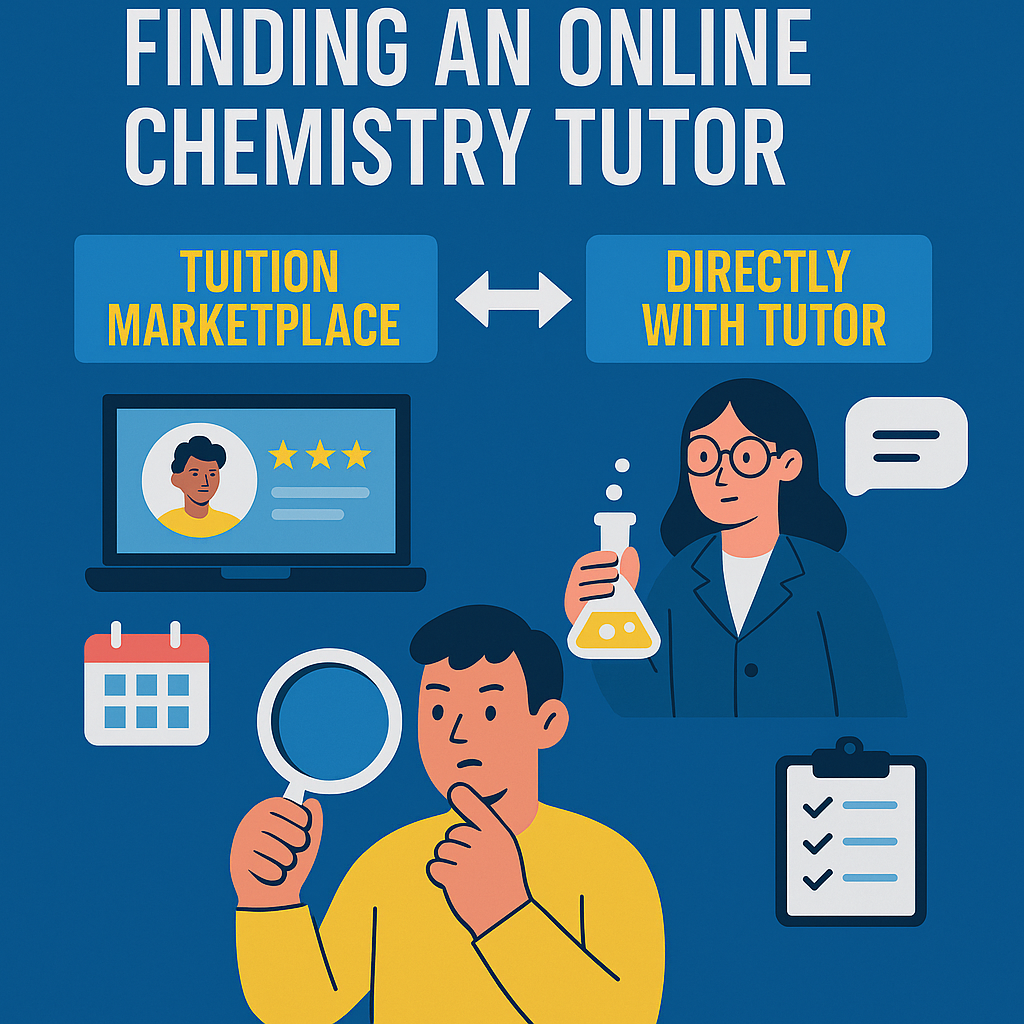Staying Calm and Focused in the Year of Your A-Level Chemistry Exam
A-Level Chemistry rewards those who stay steady, not those who sprint early then burn out.
If you're facing your A-Level Chemistry year, you've probably heard all the usual advice:
“Revise early.”
“Do past papers.”
“Use the specification.”
And all of that is important. But there's one piece of advice you rarely hear, yet desperately need:
Don’t panic.
A-Level Chemistry is intense—yes. But it’s not unmanageable. And more often than not, it’s panic—not the syllabus—that causes students to underperform.
In this blog we’ll walk through how to manage your mindset, stay calm under pressure, and approach the year with a clear, steady head. You’ll learn how to prepare for success—without losing your sanity.
Don’t Let the Size of the Syllabus Scare You
Chemistry has a reputation: heavy content, abstract concepts, complex maths.
“Often, we allow ourselves to be overwhelmed by things that are completely manageable.”
Instead of looking at the whole course as a mountain, break it down into steps:
Focus on one topic per week
Use the specification as a checklist
Don’t try to master everything at once
💡 A calm brain learns better than a stressed one.
Remember: You Don’t Need to Be Perfect
“Don’t sweat the small stuff—and most of it is small stuff.”
A bad mock, a confusing lesson, or a tricky topic doesn’t mean you're doomed.
Success in A-Level Chemistry is about consistency, not perfection:
You don’t need to understand everything instantly
You don’t need full marks in every test
You don’t need to study 7 hours a day
You just need to keep showing up, keep practising, and keep improving.
Give Up the Need to Compete With Others
In sixth form, it’s easy to look around and compare yourself:
“She’s already done all the past papers.”
“He got 92% on the last test.”
“I’m so far behind.”
But comparison causes panic. And panic ruins focus.
“Don’t waste your energy trying to control things that are beyond your control.”
Focus on your own progress:
Did you understand more today than yesterday?
Are you putting effort into topics you used to avoid?
Are your marks improving over time?
That’s real success. Not what anyone else is doing.
Practice the Power of Now
One of the most stressful habits students have is time-travelling:
Worrying about the final exam
Replaying last term’s mistakes
Panicking about predicted grades
“Ask yourself: will this matter a year from now?”
So instead of obsessing about the grade, focus on what you can do today:
Can I revise enthalpy changes for 30 minutes?
Can I complete 3 practice questions on rates of reaction?
Can I mark one past paper question?
Bring your focus to the present. It’s the only place revision happens.
Treat Chemistry Like a Process, Not an Identity Test
Many students say:
“I’m just bad at chemistry.”
“I don’t have a science brain.”
“This just isn’t my subject.”
“You're not your thoughts.”
Struggling with a topic doesn’t mean you're bad at chemistry. It means you're learning.
Think of chemistry as a skill—like driving or playing an instrument:
It takes time
It involves trial and error
It requires a good teacher and consistent practice
You’re not failing. You’re in the process of improving.
Slow Down to Speed Up
In the rush to revise everything, students often go too fast:
Rushing past paper questions without checking mark schemes
Reading the textbook but not pausing to understand
Skipping over topics because “they take too long”
“Being in a hurry is a recipe for stress and mistakes.”
So slow down:
Spend 15 minutes understanding one equation deeply
Do fewer questions but mark them thoroughly
Take breaks when your focus drops
Efficiency comes from clarity—not speed.
Use Micro-Mindfulness in Your Study Routine
You don’t need to meditate for 20 minutes every day (unless you want to). But you can build mindfulness into your revision:
Take 3 deep breaths before you begin a study session
Pause after each paragraph to ask, “Did I understand that?”
After a mistake, say “That’s okay—I just learned something”
“Peace of mind comes not from avoiding problems but from learning how to deal with them.”
Make calmness part of your revision plan—not something that’s only allowed after exams are over.
Don’t Let a Bad Day Become a Bad Week
We all have off-days. Maybe you feel tired. Maybe you didn’t get much done. Maybe your test didn’t go well.
“Life is a series of moments. Don’t ruin a good day today because of a bad moment yesterday.”
One mistake, one blank mind, one unproductive day—these don’t define your year.
Take the pressure off. Learn from it. Restart tomorrow.
Create a “Good Enough” Study Plan
Perfectionism is a trap. You’ll never feel like your plan is perfect. The goal is not the best plan—it’s a plan that works for you.
A good-enough study plan might be:
3x 30-minute chemistry sessions per week
1 past paper per fortnight
One review session every Sunday evening
Simple. Flexible. Achievable.
“Don’t overanalyse. Just start.”
Don’t Rely on Motivation—Use Habits Instead
If you wait to feel like studying, you’ll study less than you need.
Instead, build small habits:
Always revise chemistry for 15 minutes after school
Always write down 1 thing you learned at the end of each session
Always ask 1 question in each lesson you don’t understand
“Let go of your attachment to outcomes. Focus on process.”
Your habits create your results—not your moods.
Remember That Chemistry is Hard for Everyone
Some students pretend they’re breezing through. Don’t believe the hype.
The truth is:
Everyone finds some part of chemistry confusing
Everyone worries about time
Everyone makes silly mistakes in past papers
“Be gentle with yourself.”
The challenge you’re facing isn’t proof you’re failing—it’s proof you’re doing something worthwhile.
Choose Progress Over Panic
In the months before the exam, panic will tempt you:
“You haven’t done enough.”
“You’re going to fail.”
“You should know this already.”
Instead of reacting with panic, respond with progress:
“Okay. What’s one thing I can do right now?”
“Let me review that topic again.”
“I’ll ask for help before this snowballs.”
“Resist the urge to dramatise. Just do the next right thing.”
If You Need Help, Ask for It Early
So many students wait until April to admit they’re lost. By then, panic has already taken root.
Instead:
Talk to your teacher now
Join a study group
Book a tutor to fill the gaps
Use online platforms like Physics & Maths Tutor, Save My Exams, or Chemguide
Support doesn’t mean weakness—it means you’re serious about doing well.
“You don’t have to do everything alone.”
Trust That You’re on the Right Track
There will be moments when you doubt yourself. That’s okay. But don’t let doubt grow louder than discipline.
Each revision session is a vote for your future self.
Each question you get wrong is a stepping stone to one you’ll get right.
Each hour you spend calmly improving is one fewer hour of panic later.
A-Level Chemistry rewards those who stay steady, not those who sprint early then burn out.
Final Thoughts: Calm is Your Superpower
The A-Level Chemistry exam year can feel like a storm. But you don’t have to be the storm.
With structure, mindset, and self-kindness, you can prepare well—without losing sleep or your sense of self.
“Life is too important to be taken too seriously.”
So breathe. Revise. And remind yourself that staying calm is a form of academic strength.
Book a 15 mins consultation with Dr Marguerite Quinn, expert online chemistry tutor, to build a calm, structured strategy for exam success—without panic. With over 3,470 hours of experience and a reputation for helping students regain clarity and confidence, Marguerite can help you prepare smarter and feel ready when it counts most.





Understand AQA A-Level Chemistry Section 3.1.1.2 on mass number and isotopes. Learn key definitions, isotope notation, calculations, and how this topic builds your scientific and exam skills.